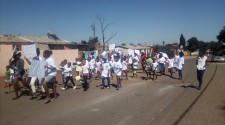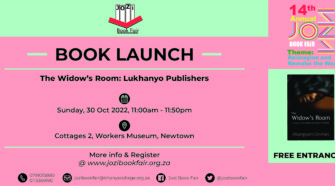![]()
This year the 11th Jozi Book Fair Festival takes place from 29August -1September 2019 at Mary Fitzgerald Square, in Newtown, with the theme, Literature and Newspapers. The theme mobilises everyone to read daily, in homes, schools, orphanages, communities and workplaces.
More than 100 years ago newspapers were the main source of communication for people as books were very expensive. Besides news and information, newspapers included literature (poetry, short stories and serialised books) and popular debates. Many people’s opinions were written and published in the Letters to the Editor section. The newspapers promoted both literacy (reading and writing) and literature (poetry, short stories etc.) daily. In some instance, more literature was published in weekly newspapers than in books or magazines.
When last did you look at any newspaper? Today, despite changes, newspapers are still more accessible in print, online and social media. (Books are very expensive in South Africa and libraries are not available.) However, newspapers do not contain much literature, but people still write letters to the Editor to air their views. When last did you look at any newspaper? It would be interesting see what debates between readers are taking place.
The JBF’s theme on newspapers provides an opportunity to also engage South Africa’s newspaper history and discover the local newspapers and early writers and readers in indigenous languages and English. The Letters to the Editor also included debates on the dispossession of land and racism.
The JBF encourages all constituencies and the public to air your views in the My Class. You are welcome to write poetry, short stories, book reviews, short 50 word opinion pieces and letters to the Editor. In addition, Khanya College also has other newspapers for different constituencies, including the TB newsletter for youth, SSM News for women, Forum News for community health workers and the Karibu local community newspaper. We look forward to an exciting year.










